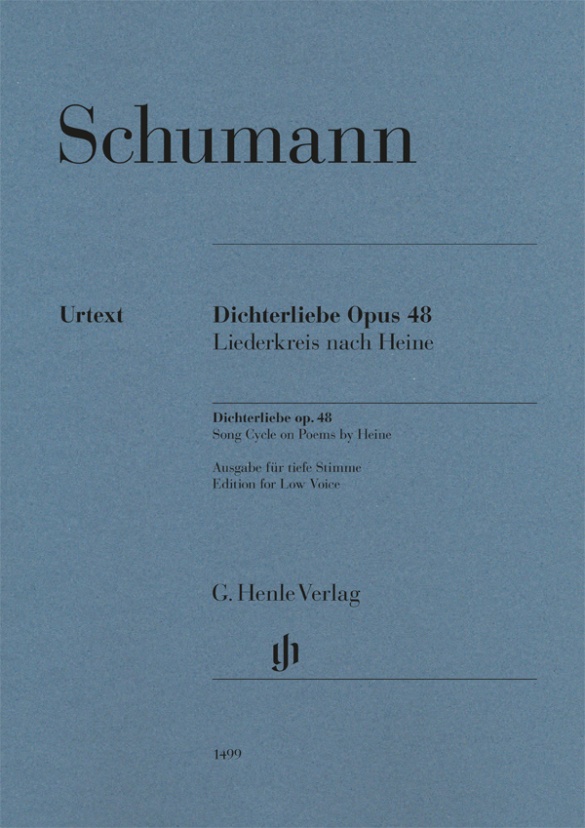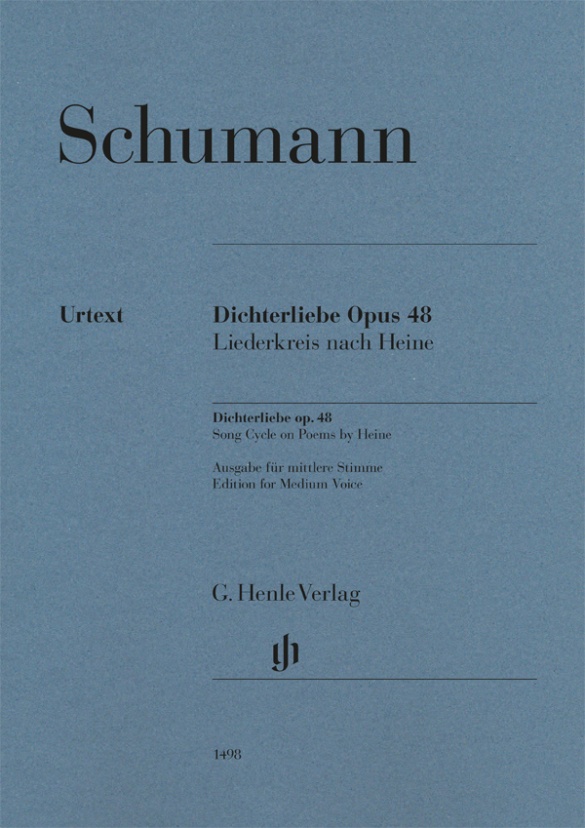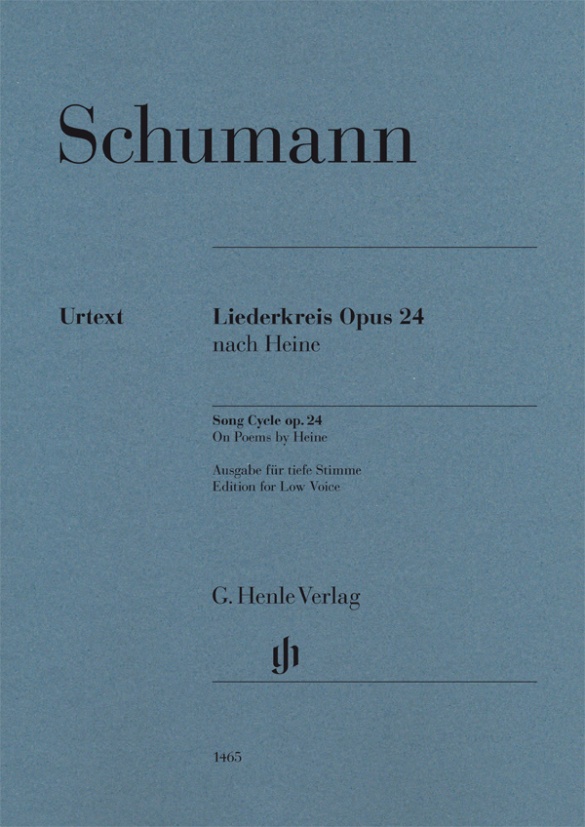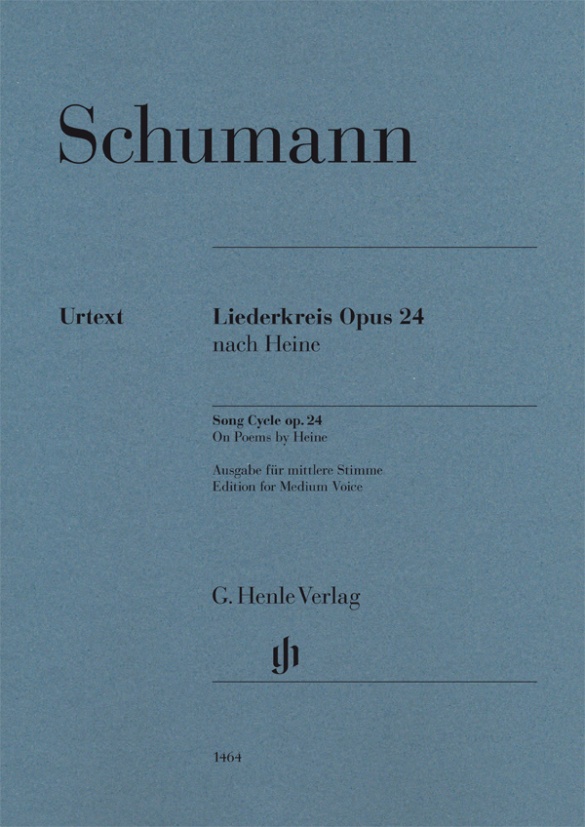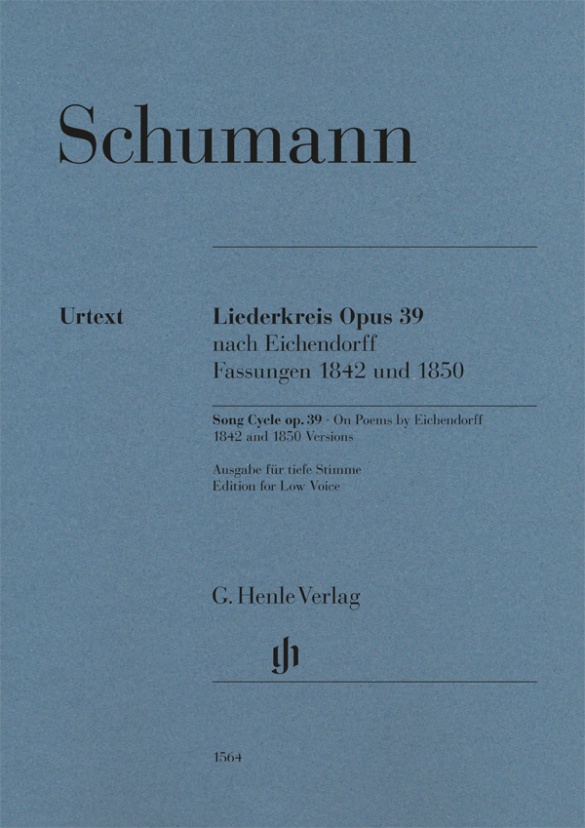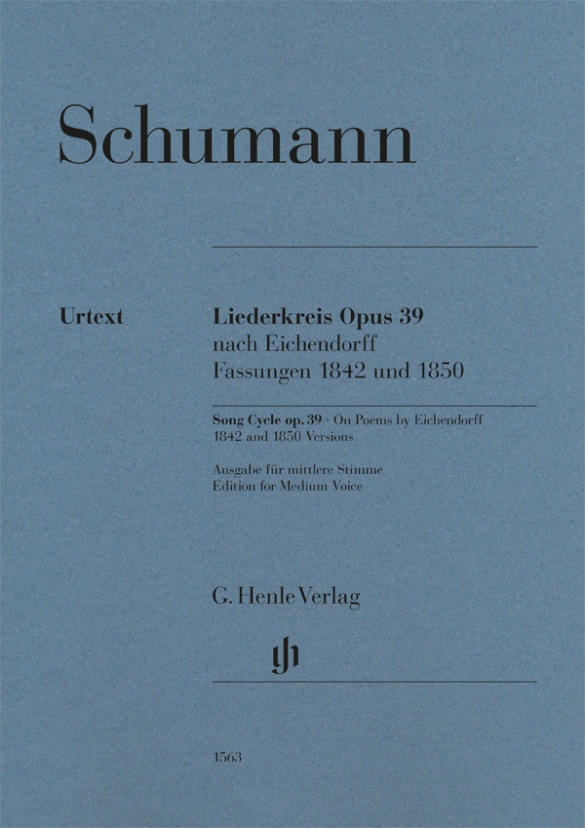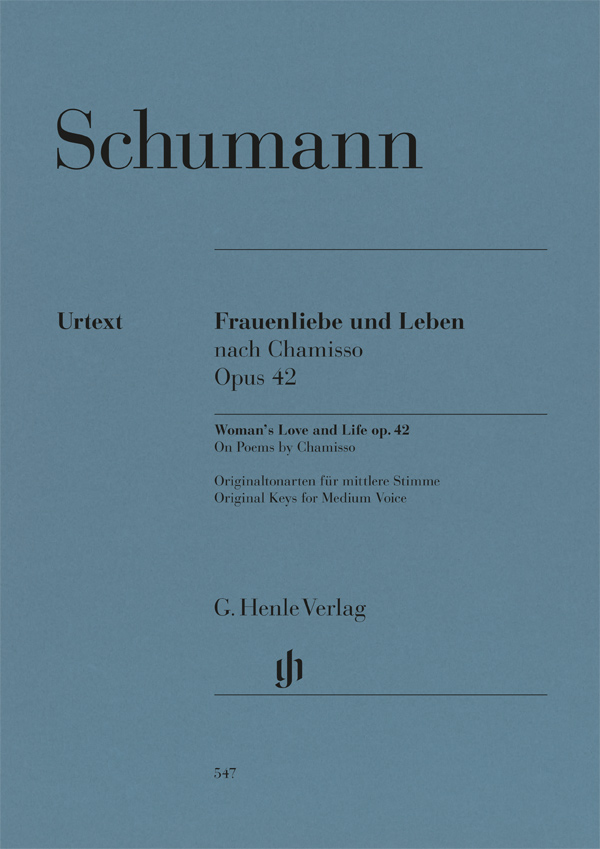

Robert Schumann
Woman‘s Love and Life (Frauenliebe und Leben) op. 42
"Yet you, a man, have sensed in these songs a depth which hardly the most knowing female heart can feel!" Thus an admirer wrote to Robert Schumann concerning his song cycle Frauenliebe und Leben. Schumann’s empathy with the highly romantic inflections of Adelbert von Chamisso‘s poetry may also have arisen from the circumstances that prompted this cycle, for it was written during one of the happiest periods of his life, just before his marriage to Clara Wieck. Ever since its initial publication Frauenliebe und Leben has been immensely popular with male and female singers alike. This urtext edition is equally well-suited for medium male or female voice (mezzo soprano or baritone).
mws-henle.cms.title-works.headline
mws-henle.cms-product-detail.composer-headline
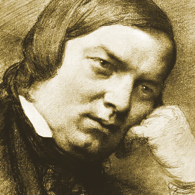
Robert Schumann
Connected with his oeuvre is the term he coined, Poetic Music, with which he strove for a fusion of literature and music, a paradigm particularly seen in his lyric piano pieces prior to 1839. Thereafter he devoted himself to other genres (song, symphony, chamber music, among others).
| 1810 | Born in Zwickau on June 8, the son of a bookdealer. |
| from 1828 | Studies law in Leipzig, piano with Friedrich Wieck. Decision to pursue a career in music. |
| 1830–39 | He exclusively composes piano works, mostly cycles, including “Papillons,” Op. 2 (1829–32); “Carnaval,” Op 9 (1834/35); “Davidsbündlertänze,” Op. 6 (1837); “Kinderszenen” (“Scenes from Childhood”), Op. 15 (1837/38); “Kreisleriana,” Op. 16 (1838); “Noveletten,” Op. 21 (1838). |
| 1832 | A paralysis of a finger in his right hand makes a career as a pianist impossible. Founding in 1833 of the fantasy brotherhood the “Davidsbund” (“League of David”). |
| 1835–44 | Editor of the Neue Zeitschrift für Musik (New Journal of Music). |
| 1840 | Marriage to Clara Wieck; 138 songs, including the Eichendorff Liederkreis, Op. 39; the song cycle “Dichterliebe,” Op. 48 |
| 1841 | Symphony No. 1 in B-flat major (“Spring” Symphony), Op. 38, and Symphony No. 4 in D minor, Op. 120. |
| 1842 | Three string quartets, Op. 41; further chamber music. |
| 1843 | Teacher of composition at the Leipzig Conservatory. Oratorio “Paradise and the Peri,” Op. 50. |
| 1845 | He settles in Dresden. Journey to Russia. |
| 1845 | Piano Concerto in A minor, Op. 54, Symphony No. 2 in C major, Op. 61. |
| 1850 | City music director in Düsseldorf. Premiere in Leipzig of his opera “Genoveva,” Op. 81. Symphony in E-flat major (“Rhenish”), Op. 97; Cello Concerto in A minor, Op. 129. |
| 1853 | Beginning of his friendship with Brahms. Completion of the Scenes from Faust. Violin Concerto in D minor for Joseph Joachim. |
| 1854 | Suicide attempt and admission to the psychiatric institution in Endenich, near Bonn. |
| 1856 | Death in Endenich on July 29. |
mws-henle.cms-product-detail.author-headline
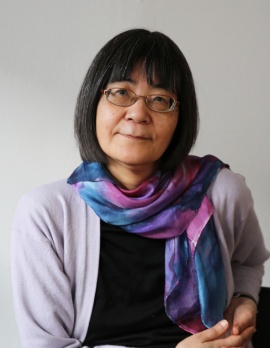
Kazuko Ozawa (mws-henle.person.role.HERAUSGEBE)
Kazuko Ozawa, born in 1954 in Mishima, Japan, studied at the Tokyo University of the Arts between 1973 and 1979, doing her MA on Schumann’s Scenes from Faust in the Musicology Department. From 1979 onwards she continued her studies at the University of Bonn, earning her doctorate with a thesis entitled “Quellenstudien zu Robert Schumanns Liedern nach Adelbert von Chamisso”.
She works as a freelance musicologist and is an external editor for the New Robert Schumann Complete Edition.
Product Safety Informations (GPSR)

G. Henle Verlag
Here you can find the information about the manufacturer of the product.G. Henle Verlag e.K.
Forstenrieder Allee 122
81476 München
Germany
info@henle.de
www.henle.com
推荐
autogenerated_cross_selling
本书目其他版本
本书目其他版本


